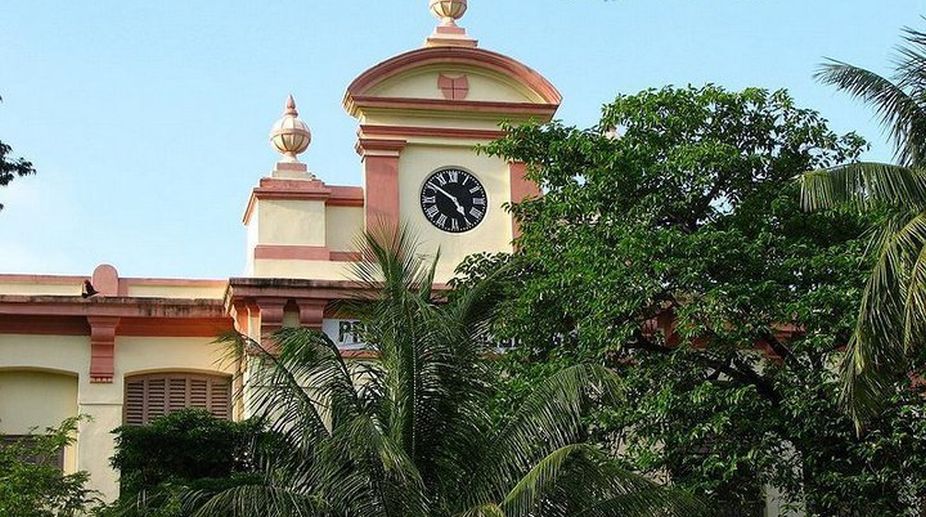The bicentenary celebrations of Kolkata’s Presidency College ~ upgraded to a university in 2010 ~ have concluded on a disconcerting note, of a kind that is bound to rock the boat of a potential centre of excellence. In a rare moment of self-reflection, the Mentor Group ~ remarkably high profile when it was put in place by the present political dispensation ~ has urged the Chief Minister to disband the entity that boasts distinguished brains in various disciplines. On closer reflection, both dispensations have erred while attempting to go on overdrive.
The CPI-M’s cardinal mistake was not to have made the college autonomous in the truest sense of the term. It bears recall that Buddhadeb Bhattacharjee, an alumnus, was overruled by the party’s education cell. Trinamul constituted a Mentor Group, and thus denuded the importance of the Vice-Chancellor. It was scarcely realised that Presidency College had traditionally been run by the Principal… in consultation with departmental heads.
Advertisement
At the helm of the university, the Vice-Chancellor has had to function within the umbra and penumbra of authoritative entities, the Governing Council being another. The collective jaw-dropping at Derozio Hall on Saturday over the Mentor Group’s winding-up suggestion coincides with a major problem that the authorities have been trying to grapple with ~ vacant seats in both the science and humanities streams.
In its report, advanced to the Chief Minister, the Mentor Group has recommended its own dissolution ~ “While the government may set up a PMG (Presidency Mentor Group) as and when required, it is not a requirement”. The likes of Sugato Bose have realised that it is a dispensable embroidery that has outlived its utility.
That rare expression of candour must prompt the query ~ Was it really necessary to set up the Group in July 2011? It will be open to question too whether the Mentor Group has indeed fulfilled its role. Chief among its failures has been its inability to address the problems of student-vacancies, not to forget the resignation of distinguished brains, pre-eminently from the Departments of Physics and History. Academics, including those inducted from abroad, have resigned owing to “pay disparity” or what they call the “lack of academic independence”.
The semi-vacant classrooms bear witness to the fundamental malaise that neither the Mentors nor the Governing Council nor for that matter the other statutory bodies have devised a formula to resolve. For all the bicentenary frills and frippery, the fundamental shortcomings have regretfully been accorded the short shrift.
For now, a rational course of action will have to be devised… principally by according a free hand to the Vice-Chancellor and the departmental heads. There really is no need for the alumni association to pull up a chair at every turn. The recommendations of the Mentor Group’s sixth report urgently call for reflection though its effectiveness will now be open to question… as seldom before.











